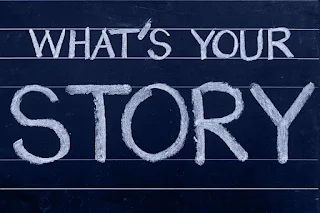Story Writing/Skeleton Story Format
Story Writing Using Clues
A story is usually a narrative which involves characters, events, and situations. A moral lesson can be extracted as a conclusion from the story.
FORMAT (How to):
# First, read the clues thoroughly.# Second, decide where you want to go with your clues i.e. how to use the clues to write a story.# Third, form a suitable title for your story
- Write at least three paragraphs, maximum five
- Paragraph 1: introduce plot or situation, or give a quick background of your character
- Paragraph 2: give more details about the character or situation
- Paragraph 3: introduce a twist, change or resolution
- Paragraph 4: conclude your story with a suitable ending
# Finally, state a moral for the story.
RULES:
# The TITLE should be center aligned# Always INDENT the paragraphs to the left# Always leave a space in between the paragraphs, skip one line# State the moral for the story in a new line at the very end.# Write the moral of the story in this format:
- Moral: Early bird catches the worm.
- The moral of the story is “Early bird catches the worm.”
A sample of a story using clues:
Q. Write a short story using the clues in the box: [5]
| monkey and crocodile…friends…forest…invitation…monkey picks mangoes…cross the river…tell a secret…eat monkey’s heart…monkey tricks |
Hint: Always write the TITLE and the MORAL.
The Witty Monkey
In a forest, once upon a time, there lived a monkey and a crocodile. They were friends. One day the crocodile invited the monkey for dinner. “My wife wants you for dinner,” said the crocodile. The monkey obliged.
On their way, they came across some mango trees. The monkey wanted to take some as souvenirs. The monkey quickly picked some. Then they moved forward and came to the river. The monkey said, “I can’t swim.” The crocodile responded, “Don’t worry. Get on my back. I’ll take you across.” The monkey was grateful. As they got right to the middle of the river, the crocodile spilled the beans. “Monkey, my wife wants to eat your heart. She is going to be so happy.” The monkey was terrified and helpless. He had been betrayed by his friend or at least he thought so. However, the monkey had his wits. Suddenly the monkey started to laugh and exclaimed, “You fool! Don’t you know monkeys keep their hearts on trees. You should have told me earlier and I would have carried it with me. Now, take me back at once.” The foolish crocodile turned back and took him ashore.
No sooner had the crocodile come on land, the monkey leaped as far as he could to save his life. “You fool!” said the monkey, “Don’t you know I have my heart with me right here?” The witty monkey walked away unharmed and the foolish crocodile returned with nothing.
Moral: Do not trust anyone blindly.
(266 words)
| Or: Moral: Use your wit in times of danger.Yet another moral could be: Moral: Do not give up in times of danger.*NEVER write more than one moral. *AVOID using “and,” “or,” “also” when writing a moral for the story.Moral: Use your wit in times of danger and don’t give up. |
Click for Story Writing Samples!




